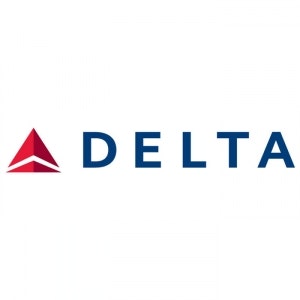On Tuesday, in a memo to employees, Delta Air Lines, Inc. (NYSE:DAL) announced that it would undertake another round of capacity cuts at Memphis International Airport, its smallest hub. After the cuts go into effect, Delta will offer only 60 departures per day from Memphis, and the airport will lose its “hub” status.
The recently announced cuts are just the latest in a long string of setbacks for fliers in Memphis. Delta has repeatedly cut back service from Memphis since early 2011, when the airline offered more than 200 daily departures. However, Delta’s latest capacity cuts will ultimately be good for the city as well as for Delta. The impending entry of Southwest Airlines Co. (NYSE:LUV) into the Memphis market will increase competition, and Southwest is likely to expand its operation there quickly, now that Delta is cutting back. Over time, this will lead to lower fares in Memphis, while benefiting both Southwest Airlines Co. (NYSE:LUV) and Delta Air Lines, Inc. (NYSE:DAL).
Demise of the 50-seat jet
The primary downfall of Delta’s Memphis hub has been its reliance on inefficient 50-seat regional jets. Memphis is a fairly small city as airline hubs go, so there is not enough demand to fill larger planes on most routes. Unfortunately, the high fuel consumption per seat of 50-seat regional jets makes it difficult to turn a profit, which explains why Delta Air Lines, Inc. (NYSE:DAL)’s Memphis operations have continued to lose money even as Delta has posted big increases in company-wide profitability.
Delta is in the midst of a major “upgauging” campaign that will vastly reduce the company’s usage of 50-seat jets. Delta is replacing most of its 50-seat jets with a smaller number of 76-seat regional jets and 110-seat Boeing 717 mainline aircraft, which offer lower fuel and maintenance costs per seat.
In fact, at a December investor conference, Glen Hauerstein — Delta’s executive vice president of network planning and revenue management — pointed specifically to Memphis as a big opportunity to reduce 50-seat regional jet flying. He noted that Delta was flying 50-seat regional jets from Birmingham, Ala., to both Memphis and Atlanta (Delta’s largest hub). Since most passengers on the Birmingham-Memphis flights were connecting to other destinations, Hauerstein suggested that Delta would save money by routing all passengers through Atlanta on larger planes.
After all, the cost per seat was much lower for flights on larger planes, and Atlanta offers far more connecting flights than Memphis ever could. Based on these comments from December, the writing was on the wall for Delta’s Memphis hub.
It’s not all bad news
Fortunately for Memphis residents, Southwest may be coming to the rescue shortly. Southwest Airlines Co. (NYSE:LUV) acquired its first Memphis route when it bought AirTran several years ago. The carrier recently announced plans to move Memphis service to the Southwest brand beginning in November, with flights to five cities.
Southwest Airlines Co. (NYSE:LUV) reportedly expects to be the largest carrier in Memphis eventually, which is good news for Memphians hoping for cheap flights. In the past, low-cost carriers have been deterred from competing with Delta Air Lines, Inc. (NYSE:DAL) in Memphis due to the fear that Delta would add flights and drop fares to drive out the competition. Now that Delta has drastically reduced its footprint in Memphis, Southwest can plan to expand its Memphis service over time without worrying about Delta trying to sabotage it.
Foolish roundup
Ultimately, Memphis is probably better off with Southwest as its top carrier rather than Delta Air Lines, Inc. (NYSE:DAL). Delta’s cost structure in Memphis meant that the company was losing money even though customers were paying very high fares. Southwest has provided plenty of flight options in other “de-hubbed” cities like St. Louis and Kansas City, and can carry passengers to a wide variety of U.S. destinations at a lower cost than Delta.
As a result, while I view this week’s announcement as a positive for Delta Air Lines, Inc. (NYSE:DAL) — it shows that the company is still on track to quickly reduce its 50-seat regional jet operations — it is also a positive for Memphis. There may be some pain for the first few years of the transition as Southwest Airlines Co. (NYSE:LUV) gradually builds a point-to-point operation in Memphis, but in the long run fliers will be compensated for the loss of their hub with lower fares.
The article Memphis Fliers Should Have Seen This One Coming originally appeared on Fool.com.
Fool contributor Adam Levine-Weinberg has no position in any stocks mentioned. The Motley Fool recommends Southwest Airlines.
Copyright © 1995 – 2013 The Motley Fool, LLC. All rights reserved. The Motley Fool has a disclosure policy.




